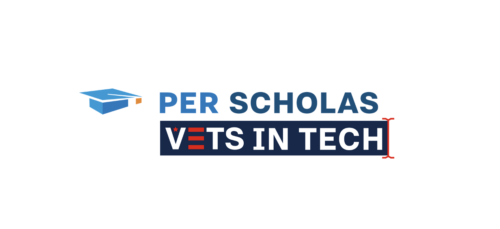
IT Workforce Development Nonprofit Per Scholas Proven to Increase Earnings and Improve Overall Well-Being, Study Shows
Per Scholas’ Effectiveness Proven in Independent Multi-Year WorkAdvance Research Study
NEW YORK (June 28, 2016) – A new report shows that Per Scholas, a national IT workforce development organization, is producing positive and lasting impacts related to the income, reliance on public benefits, and overall well-being of its students. An impact evaluation of WorkAdvance was released this week by MDRC, a nonprofit, nonpartisan education and social policy research organization. The two-year study, which followed a gold standard random control trial design, evaluated the effectiveness of four workforce development programs. The findings show that sectoral programs (training focused on rapidly growing sectors of the economy like information technology) can increase earnings among low-income individuals.
The WorkAdvance study proves the large and consistent impacts possible from an experienced provider, such as Per Scholas, and the potential impact that a well-run sector program can have. According to the findings, Per Scholas produced the largest impact on employment in a targeted sector. Key WorkAdvance findings for Per Scholas include:
- 61 percent of Per Scholas WorkAdvance group members reported working in the information technology sector at their current or most recent job.
- Students of the WorkAdvance program at Per Scholas significantly reduced their receipt of public assistance benefits following graduation.
- Per Scholas WorkAdvance group members reported higher hourly, weekly and annual earnings. Earnings increased by more than $3,700 (or 26 percent) above the control group in Year 2.
- A measure of life satisfaction was approximately ten percentage points higher among the program group compared to the control group.
“This latest study validates what we’ve known for some time – that given proper training and coaching, individuals from often overlooked communities can acquire the skills and business acumen to not only enter the IT field, but excel and experience significant career progression,” noted Plinio Ayala, president and chief executive officer of Per Scholas. “At Per Scholas, we’re not just training people for a job. We’re arming people with life-changing business and life skills that result in long-term success and economic mobility.”
Launched in 1995, Per Scholas provides rigorous and tuition-free technology training and professional development to people who are un- or underemployed. These un- or underemployed individuals are unable find sustainable pathways out of low-wage work, and Per Scholas provides free, effective training and program supports that enable them to launch successful careers in technology, while creating onramps to businesses in need of their talents. To date, Per Scholas has trained over 5,000 individuals, helping them build successful careers in the tech sector. Per Scholas has now been shown to produce large impacts in two separate studies – in this study as well as in the 2010 Sector Employment Impact Study.
“It is unusual to see such a consistent pattern of impacts from an employment program across so many domains of work and overall well-being,” noted Richard Hendra, principle investigator of the WorkAdvance Study. “These large impacts on both primary and secondary economic measures reaffirm the overall effectiveness of the WorkAdvance program at Per Scholas.”
WorkAdvance was launched as a research demonstration project under the federal Social Innovation Fund in 2013. The program seeks to boost the earnings of unemployed and low-wage working adults by helping them prepare for and enter quality jobs in targeted industries with opportunities for career growth. The WorkAdvance study released this week, featured four workforce development organizations in four locations: Per Scholas and St. Nicks Alliance in New York City; Madison Strategies Group in Tulsa, Oklahoma; and Towards Employment in Cleveland and Youngstown, Ohio.
“Five years ago, I would have never imagined making it this far in my career, making enough to have my own place. I grew up in single parent household and things were tough. When all my friends were going away to college, I worked two to three jobs for food and shelter,” noted Naya Moss, 2015 Per Scholas NY graduate. “The training and hands-on support I received through Per Scholas prepared me for a career in tech and really enabled me to be successful, independent, and workforce ready.”
To view the WorkAdvance Executive Summary and findings, visit www.mdrc.org/publication/encouraging-evidence-sector-focused-advancement-strategy.
MEDIA CONTACT:
Kaitlin Sanderson
(301) 585-5034,
Sign up for our Monthly Impact Report
More News

Donate Now
Your support makes a powerful difference in our ability to build a technology talent training solution that creates greater access and equity.

